- Rent, Lease, or Purchase
- |
March 8, 2021
Shipping Container Permits, Zoning Laws, and Building Codes
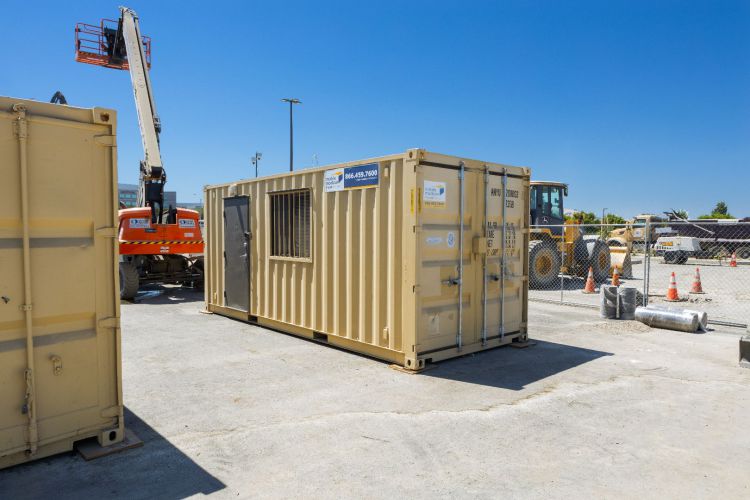
A common question before getting a shipping container is, “Do I need a permit for my shipping container?” The short answer is yes, most of the time you do.
You need to meet building codes and zoning laws to put a shipping container on your site. That often means obtaining a shipping container permit as dictated by the International Building Code (IBC).
That said, every state has its own laws, so it is best to check directly with your local county authorities.
Shipping container zoning laws and permits are in place so that the occupants of the containers stay safe in the structures. Listed below are important questions you’ll need to answer when applying for a permit for shipping containers:
- Will your shipping container construction be a temporary or a permanent structure?
- Does your area have a homeowner's association (HOA) that you may need to speak with?
- Do you live in a location with high traffic density?
- Will you use the container for storage, as a permanent home, or as a rental home?
- What will be the size of the container? The most common sizes are 10', 20', 40', and 40' high-cube.
If you're using the container for only a short period, you’ll have more minor requirements to navigate and only require a temporary use permit. However, permanent container structures must meet more standards. Similarly, low-traffic and rural areas permit containers easier than high-traffic or residential sites.
This article explores types of permits and related requirements.
Types of Building Regulations
Zoning Laws
City governments usually allot land according to usage. This impacts the type of construction you can do in an area.
Most cities have separate residential, commercial, and industrial zones. That's why liquor stores are generally not located in residential areas. Residential zones are also divided into areas that allow row houses and those that permit high-rise construction. Each zone might have different laws on shipping containers.
For instance, Information Bulletin 149 of the San Diego Development Services Department mandates building permits for cargo containers in San Diego city except in the following scenarios:
- Temporary use of the container on a site for the contractor’s office, hauling away debris, and for storage of construction equipment, tools, or material during grading or construction of a building having a valid building permit
- Storage of equipment, tools, or props during a permitted special event
- You need a separate permit to install electricity, plumbing, gas, and sewer utilities
Check with your municipal government regulation authorities about zoning regulations for shipping containers that apply to your site, business, or home.
Building Codes

Building codes vary based on states and cities in the United States. Most building codes are derived from International Code Counsel's International Residential Code (IRC) and International Building Code (IBC).
Some states, such as Massachusetts, have their own code and safety standards.
In most cases, the IRC will apply to container homes built on permanent foundations. Some places will not allow shipping container homes unless they are permanent structures.
While authorities update building codes every few years, you only need to find the latest regulations that are valid in your area. You can also consult a local architect or a general contractor.
Deed Restrictions (Restrictive Covenants) and HOA Rules
Besides those dictated by the government, additional rules might apply depending on your deed.
Remember to identify all site restrictions specified by the deed. This document is penned by the original land developer to keep a uniform appearance across the neighborhood and protect property values. The Home Owners Association (HOA) is responsible for governing this area.
Some common aspects of a deed are usage restrictions, lease restrictions, and mandatory architectural reviews. Note that a deed is permanent, and you may need a court order to remove it whereas, you can get the HOA rules changed through a vote.
To understand private deeds, consult a lawyer with an understanding of real estate transactions in your county.
Storage Container Permits
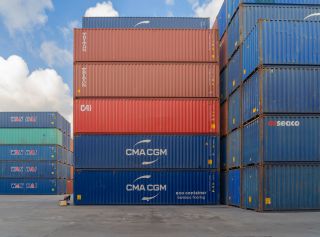
If you're using containers for storage applications, you’ll need to abide by a different set of rules than those that apply for a shipping container home.
The rules differ for every state, but these factors will help you plan the permits for storage containers:
- The location of the container on your property
- Rules applicable in your city and state
- The container's physical condition
- The duration for which the container will be at your site
- The container's impact (if any) on the community
These tips will help simplify the process:
- Getting a permit for temporary use is easier than getting one for a permanent storage container.
- Getting permits for a container is easier in low-traffic or rural areas. However, you will need to comply with more rules if you want to place it in a high-density, residential area.
- It may help to hire a permit expediter who can navigate the legal requirements and building code officials.
As an example, here are the permit requirements to place a container on a private plot in San Diego county. You'll need to find similar rules for containers applicable in your location.
Can I Have a Shipping Container on My Property?
Most cities and states in the United States will allow you to place a shipping container on the property with a temporary permit.
The rules vary based on whether your site is residential or commercial (pop-up restaurants, retail outlets, etc.).
Residential vs. Commercial Property Guidelines
The guidelines for using shipping containers on a residential vs. a commercial site change based on the zone, neighborhood agreements, municipal code, and other factors are discussed below.
Commercial Locations
The guidelines for commercial locations come from the International Building Code (IBC). As an example, the municipal code ordinance 1976-21 of the city of Sedro-Woolley in Skagit County, Washington, defines these guidelines for containers in a commercial site:
- You can use containers in mixed commercial zones and central districts if they are screened with sight-obscuring fencing or landscaping approved by the planning department.
- All applicable Department of Transportation (DoT) licenses are valid with proofs of validity available.
- The containers are temporary and not permanently installed.
In Sedro-Woolley's case, you can't use containers as residential units. You can, however, use it as an ancillary to a project with a valid building permit. This is only for storage of equipment of up to a hundred and eighty days. The temporary permit for the shipping container is non-extendable.
Residential Locations
The guidelines for residential locations are based on the International Residential Code (IRC).
In Georgia, for instance, the Appendix-Q of IRC (guidelines for tiny homes) apply to shipping container houses. Here is the detailed set of guidelines for Georgia. You can also explore the guidelines below for the maximum number of containers that you can put on a given lot size:
- One container on a lot between 1 and 2 acres
- Two containers on a lot between 2 and 5 acres.
- Three containers on a lot between 5 and 10 acres.
- No more than five containers on a lot larger than 10 acres.
Be sure to confirm the maximum number of containers with your city's municipal authorities.
Note - Please note that shipping container homes are not the same as modular buildings or manufactured homes and Recreational Vehicles (RVs).
Modular homes are built in a factory and transported on-site. This article is about standards and permits for shipping containers only.
What Aspects of Container Homes Fall Under Regulations?

There is a range of articles in shipping containers that authorities regulate based on property zoning, building code, and restrictive covenants. Some of these include:
- Appearance - This includes any external viewable aspects such as the color, material of the windows, doors, shades, and decks.
- Accessibility - For people with disabilities.
- Size - In square footage according to the number of rooms and overall layout.
- Site offsets - Distance from the site lining to the edge of the house and the space between yours and adjacent houses.
- Foundation - The type and depth of foundation and its height above the ground.
- Landscaping - The kind of plants you can have or the most trees that you can remove for the structure.
- Means of egress - The number of exterior exits and the number of rooms you need to cross before exiting the house.
- Fire and smoke - The number and placement of smoke detectors and CO detectors.
- Energy conservation - It usually depends on the doors, windows, insulation, sealing around penetrations, and appliances.
- Structural reinforcements - Compliance with wind and snow loads.
- Electrical, mechanical, and plumbing - Rules related to the design and installation of these systems.
Which States are the Best to Build Shipping Container Homes?
Most US states support shipping container homes as long as they follow the local building codes and regulations. The International Code Council (IBC) has updated its guidelines to make more districts container-friendly.
Some places where it is easiest to build container homes are:
Louisiana
Thanks to small local governments and their hands-off approach, the state ranks #1 in terms of land freedom.
Texas
The building regulations in Texas tend to be more relaxed, and there are many container-based structures, both large and small, already in the area. Here's a look at one container home:
California
Notorious for its strict building standards, California is more lenient regarding innovative constructions and alternative means of building.
Tennessee
There is ample freedom to build in Tennessee. Land prices are especially affordable on the western side of the state.
Missouri
Missouri enforces minimum code requirements and rules in rural regions. Check out this imaginative house, built entirely out of containers:
Alaska
Alaska does not zone low-cost housing. Therefore, you can build a house out of shipping containers in Alaska with minimal permit requirements.
Oregon
Oregon has strict building regulations but is also known for its off-grid communities, among whom shipping containers are popular.
Conclusion
Since these government laws are specific to your location, you may not find all the answers on Google. Instead, base your research around your city or location and the kind of storage or construction project you plan to undertake. It may also help to hire a permit expediter who can help you understand all the legal requirements.
As a seasoned container provider, our representatives at Mobile Modular Portable Storage can help you with the right container sizes, accessories, and resources for container installations. Our experienced drivers make hassle-free container deliveries.
Related Blogs
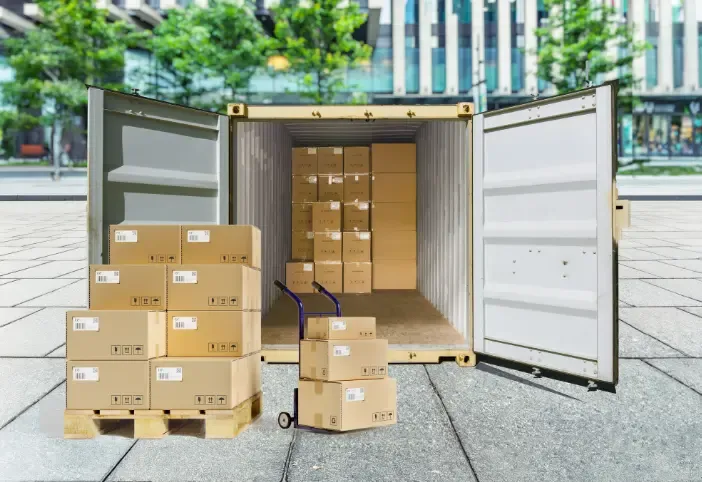
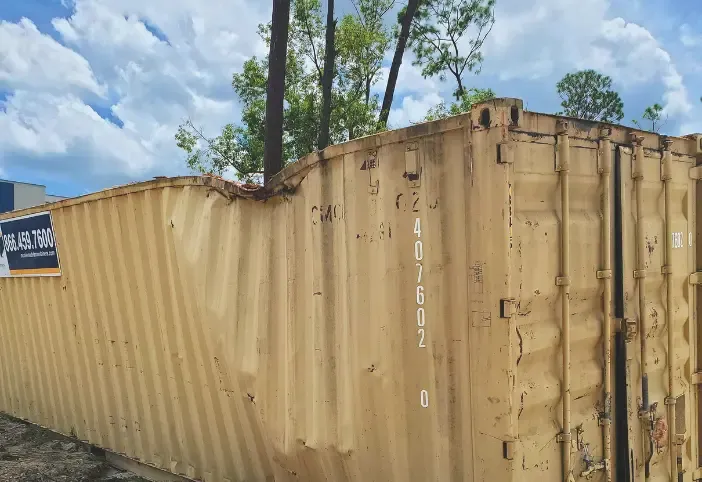
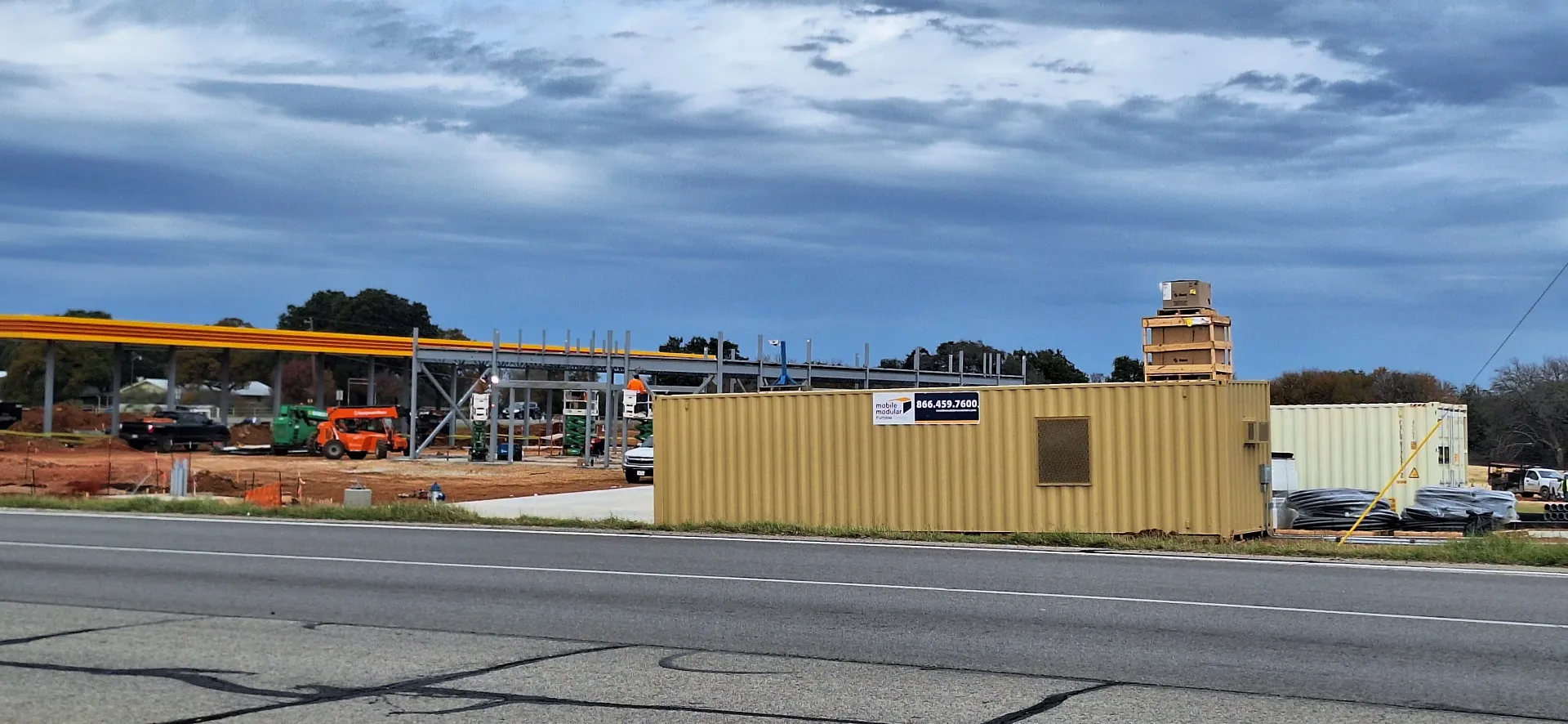
Subscribe to Our Blog
Enter your email address to subscribe to the blog and receive the notification of new posts by email.
Thank You for Subscribing to Our Blog!
Stay tuned for upcoming emails with valuable content that we hope will enhance your experience with our brand.
Both Pardot and mg360 form submissions failed.
